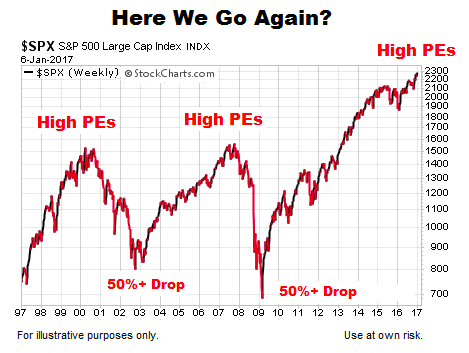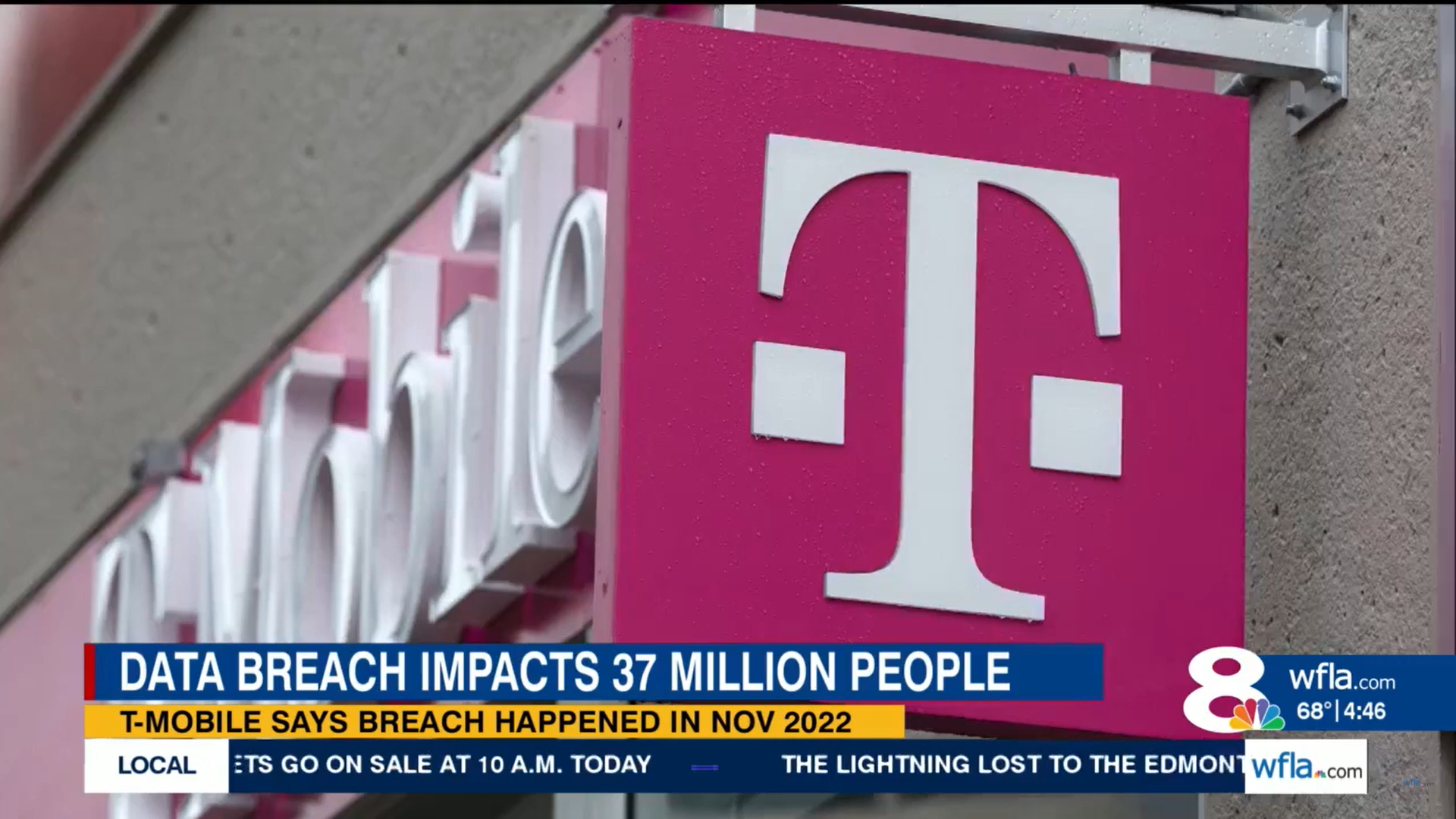Meta Under Trump: Zuckerberg's Strategic Challenges

Table of Contents
The Rise of Misinformation and Political Polarization
The Trump administration's rise coincided with a surge in misinformation and political polarization, significantly impacting Meta's operations. This section explores the intertwined relationship between Trump's use of Facebook and the platform's struggle to moderate content effectively.
Trump's Use of Facebook as a Political Platform
Donald Trump's prolific use of Facebook during his campaign and presidency is undeniable. He leveraged the platform to directly reach millions of supporters, bypassing traditional media outlets. This strategy had a profound impact on political discourse.
- Examples of controversial posts: Trump frequently used Facebook to share unsubstantiated claims, inflammatory rhetoric, and attacks on political opponents.
- Reach and engagement statistics: His posts consistently garnered millions of likes, shares, and comments, demonstrating the immense reach he commanded on the platform.
- Impact on political discourse: This direct access fueled political polarization, creating echo chambers and exacerbating existing divides within the American public. The amplification effect of Facebook's algorithm contributed significantly to the spread of his messages. The platform became a central battleground for political debate and a key instrument for mobilizing his base.
Facebook's Struggle to Moderate Content
Facebook faced immense pressure to moderate content related to Trump and his administration. The volume and nature of misinformation, hate speech, and divisive rhetoric presented unprecedented challenges.
- Examples of policy failures: Critics argued that Facebook's policies were inconsistently applied and often failed to adequately address the spread of harmful content.
- Criticism from lawmakers and the public: The company faced intense scrutiny from lawmakers, regulators, and the public for its perceived inaction in combating misinformation.
- Internal debates on content moderation: Reports surfaced of internal disagreements within Facebook regarding the best approach to content moderation, highlighting the ethical and logistical complexities involved.
Balancing free speech principles with the need to curb the spread of harmful content proved to be a significant ethical and logistical challenge for Facebook. The platform grappled with defining and enforcing clear guidelines for acceptable content, navigating a constantly evolving political landscape.
Increased Regulatory Scrutiny and Antitrust Concerns
The Trump era brought increased regulatory scrutiny and antitrust concerns for Meta, significantly impacting its operations and strategic planning.
Investigations into Facebook's Practices
The Trump administration's focus on antitrust enforcement led to several high-profile investigations into Facebook's practices. These investigations covered a broad range of issues, including data privacy, antitrust concerns and election interference.
- Key investigations (FTC, DOJ, state AGs): The Federal Trade Commission (FTC), the Department of Justice (DOJ), and multiple state Attorneys General launched investigations into Facebook's business practices.
- Outcomes of these investigations: These investigations resulted in significant fines and penalties, impacting Facebook's financial performance and its public image.
- Fines and penalties: The resulting fines and settlements demonstrated the severity of the regulatory concerns surrounding the company's activities.
The Trump administration's stance on regulation, often characterized by a more interventionist approach toward large tech companies, directly influenced the intensity and outcome of these investigations.
The Impact of Section 230 Debates
Debates surrounding Section 230 of the Communications Decency Act intensified during the Trump era, posing significant challenges for Meta. Section 230 provides legal protection for online platforms from liability for user-generated content.
- Trump administration's position on Section 230: The Trump administration expressed strong criticism of Section 230, suggesting its repeal or significant modification.
- Potential consequences of its repeal or modification for Facebook: The potential repeal or modification of Section 230 posed a substantial threat to Facebook, potentially exposing it to significantly greater legal liability for user-generated content.
The uncertainty surrounding Section 230's future created a climate of instability for Meta, forcing the company to reassess its content moderation strategies and legal defenses. The debate over Section 230 remains a crucial issue for online platforms, impacting their ability to operate freely and responsibly.
Damage to Facebook's Reputation and Brand Image
The controversies surrounding Meta during the Trump era significantly damaged its reputation and brand image, impacting user trust and business performance.
Public Perception and Trust
The constant barrage of negative news surrounding misinformation, data privacy breaches, and political manipulation eroded public trust in Facebook.
- Examples of negative media coverage: Numerous media reports highlighted Facebook's failures to address the spread of misinformation and its role in political polarization.
- Public opinion polls: Public opinion polls consistently showed a decline in trust and confidence in Facebook during this period.
- Impact on user engagement and advertising revenue: The erosion of trust negatively impacted user engagement and advertising revenue, creating a significant challenge for the company's financial performance.
The long-term consequences of this damage to Facebook's reputation are still being felt today, requiring a significant investment in rebuilding trust and enhancing transparency.
The Shift in Public Discourse and the Rise of Alternative Platforms
The controversies surrounding Facebook during the Trump years contributed to the rise of alternative social media platforms. Users sought out platforms that claimed to offer a different approach to content moderation and political discourse.
- Examples of competing platforms (Parler, Gab, etc.): Platforms such as Parler and Gab gained prominence, attracting users who felt disenfranchised or marginalized by Facebook's policies.
- User migration patterns: Significant numbers of users migrated to these alternative platforms, impacting Facebook's market share and dominance.
- Impact on Facebook's market share: While Facebook remained the dominant platform, the emergence of alternative platforms signaled a shift in the social media landscape, challenging Facebook's hegemony.
This shift in the social media landscape forced Meta to adapt its strategies and address the concerns of users seeking alternative spaces for online interaction.
Conclusion
Meta's experience under the Trump administration was a watershed moment, highlighting the complexities of regulating social media and the inherent challenges in balancing free speech with the need to combat misinformation and protect users' data. The period saw increased regulatory scrutiny, damage to Meta's reputation, and a shift in the social media landscape. Understanding the strategic challenges faced by Meta during this time offers crucial insights into the ongoing debate surrounding social media's role in society and the evolving responsibilities of tech giants. Further research into the lasting impact of "Meta Under Trump" is vital to navigate the future of online platforms and their influence on political discourse. Analyzing the "Meta Under Trump" period provides invaluable lessons for navigating the future of online platforms and their impact on society.

Featured Posts
-
 The Bold And The Beautiful Liams Collapse A Fight For Survival
Apr 24, 2025
The Bold And The Beautiful Liams Collapse A Fight For Survival
Apr 24, 2025 -
 Understanding High Stock Market Valuations Insights From Bof A
Apr 24, 2025
Understanding High Stock Market Valuations Insights From Bof A
Apr 24, 2025 -
 Is Betting On Wildfires Like The La Fires A Sign Of Our Times
Apr 24, 2025
Is Betting On Wildfires Like The La Fires A Sign Of Our Times
Apr 24, 2025 -
 Stock Market Rally Futures Soar On Trumps Commitment To Powell
Apr 24, 2025
Stock Market Rally Futures Soar On Trumps Commitment To Powell
Apr 24, 2025 -
 T Mobile To Pay 16 Million For Data Breaches Spanning Three Years
Apr 24, 2025
T Mobile To Pay 16 Million For Data Breaches Spanning Three Years
Apr 24, 2025
